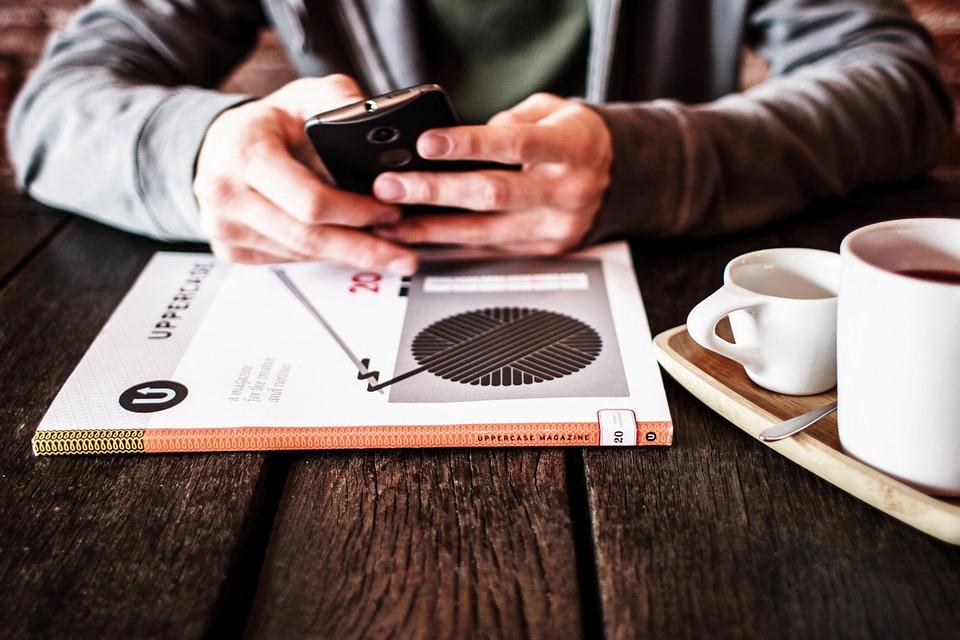When’s the last time you’ve called someone with the sole purpose of encouraging, uplifting, or supporting them?
In recent years I’ve begun making time each week to call a few people I know to say “hello.” It’s an act I’ve cultivated with intention. I usually make these phone calls on my commute to and from work, or on my lunch break.
This practice of outreach has added joy, texture, and fulfillment to my weekly life. It has added depth to my relationships, strengthened my compassion, and given me new wisdom. From what friends and family tell me, hearing from me reminds them that they are not alone and brings them a lot of joy, too. They keep picking up the phone when I call, and they often call me voluntarily, so that tells me that something is working here!
These aren’t phone calls I make to ask for something, to confront the other person, or for business purposes (although those calls can have their own merit, time and place, too.)
The calls I’m talking about are ones I make out of love.
***

My story begins when I took the leap of intentionally calling a disabled elderly woman in my community three years ago, who I knew was spending a lot of time alone at home. I imagined what it must feel like to be alone and unable to get outside or move about easily. I thought that hearing from a friend might feel good. So I called her.
Studies show that lack of social connection is worse for health than obesity, smoking, and high blood pressure. Social connection strengthens the immune system, helps individuals recover from disease faster, lengthens life expectancy, lowers rates of anxiety and depression, and builds higher self-esteem. Social connection generates a positive feedback loop of well-being.
She said to me, “I forgot that anyone cared about me. Now I know that someone cares about me. It feels so good to talk to you. Thanks for calling me today, you have no idea how much this means to me.” Her words made me cry after I hung up the phone. I felt overwhelmed — I was receiving perhaps as much joy from her gratitude as she received from my outreach. It was mutually beneficial.
That was a turning point for me. From then on I began to cultivate the time and space for these phone calls.

***
I call to inquire about how the individual is doing — and to listen. I call to ask with genuine interest how each individual is feeling. I call without judgment, to simply be a receptor and a mirror of feelings, a fountain of encouragement and positive energy. These are calls that I make with awareness, intentionally putting the other person first.
One of the things that allows me to make these calls is that I make sure to call when I feel grounded. When I am in the midst of a personal struggle or bout of insecurity I will reach out for help for myself, but that is a different kind of call.
I am a deeply sensitive person, but I also have a strong sense of what my boundaries are. If I’m tired and drained, emotionally unable to carry other’s burdens then I don’t attempt to make one of these encouraging calls, because it would be impossible for me to be genuinely present for the other person.
So I choose carefully when I make the phone calls. This is an important skill I have learned, to be self-aware, in general, so that I do not become drained.
***
If I’m talking to a friend or family member who is open to spirituality, we will pray together. I’m Christian but I support and honor all faiths and perspectives. Sometimes, I like to end a call by saying a blessing, such as, “I pray that you are blessed with good health in your mind, body and spirit. I pray that you find peace and resolution to the issues that you are struggling with today, and I pray that you have a wonderful rest of your day!”
I almost always get off the phone feeling lighter, brighter, and happier too.
Sometimes I am moved to tears, or feel deeply saddened by the pain another person is suffering through. But I am willing to go there and to allow myself to feel deeply, and to be renewed and blessed by the experience.
***
Unlike so many of the daily social interactions we have that revolve around surface-level connections — like social media posts, business e-mails, and impersonal encounters, these phone calls I make are rich and meaningful exchanges. It’s like the difference between eating candies versus enjoying a home-cooked, nourishing meal. The latter takes more time and creative investment, but the rewards are powerful and long-lasting.
These calls make me feel connected and I hear consistently from those I call how much it adds happiness to their day, relieves anxiety, helps them to re-focus, and reminds them that someone cares and is thinking of them.

***
If you are new to the concept of calling someone to simply say “hello” or encourage them, it’s OK to take baby steps. Perhaps begin with one call, and the intention to keep it short. Is there a person in your life who could be cheered up by hearing your caring voice on the other end?
Begin by saying “Hello, so-and-so. It’s so-and-so. I just wanted to call and say hi and see how you’re doing today/these days.” Sometimes the other person will eagerly want to know what you’ve been up to — so be prepared to talk a little bit about your own life.
When you’re ready to hop off the call, you can lovingly say, “I’m so glad we had a chance to connect. I’ve got to go, but it was great talking with you.”
Picking up the phone to connect voice-to-voice with someone builds a stronger bond between you and that other person.
Today, science continues to confirm that having meaningful, familial-type relationships with other people — i.e. — having people in your life that you can call on when you’re in need — increases our life expectancy.
Knowing that you are not alone and that someone cares about you creates assurance about the future, reinforces healthy habits, and improves overall health. You can give that gift to another person by picking up the phone right now.
“We rise by lifting others.” ~ Robert Ingersoll

***
One last thing…
If you liked this article, click the? below so other people will see it here on Medium.
Follow Kristen on Twitter.
References:
1. Family relationships, social support and subjective life expectancy.
Link: https://www.ncbi.nlm.nih.gov/pubmed/12664677
2. Connect To Thrive: Social Connection Improves Health, Well-Being & Longevity
Published on August 26, 2012.
Link: https://www.psychologytoday.com/blog/feeling-it/201208/connect-thrive
3. Social Relationships and Health
Authors:
JS House,
KR Landis,
D Umberson
Science 29 Jul 1988:
Vol. 241, Issue 4865, pp. 540–545
DOI: 10.1126/science.3399889
Link: http://science.sciencemag.org/content/241/4865/540
Originally published at medium.com


